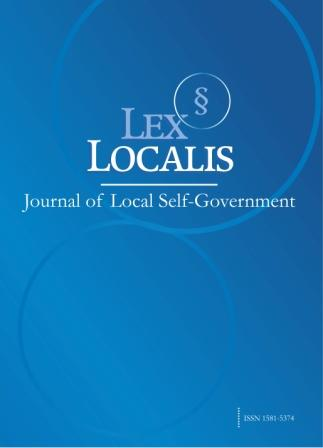Behavioral Characteristics of Local Government Officials' Duty Crimes and Reconstruction of the Power Supervision System under the Framework of Criminal Law Theory
DOI:
https://doi.org/10.52152/800027Keywords:
criminal law provisions; job crimes; professional ethics; power supervision systemAbstract
This paper focuses on the relationship between active and passive bribery in job-related crimes, legal penalties, and establishment conditions, and analyzes the behavioral characteristics of job-related crimes committed by local government officials in terms of motivational structural factors, subjective psychology, and the influence of the social environment, such as purposeful and intentional criminal mentality and neglect of professional ethics and laws and regulations. Aiming at the current situation of leadership system, weak supervision of key links, system complementarity and operability, and preventive supervision, we put forward the reconstruction strategies of the power supervision system such as updating concepts, establishing a system of rules for sentencing recommendations for the system of leniency of guilty pleas and penalties, reinforcing the supervision of disciplinary commissions and supervisory committees with special responsibility, and establishing an effective mechanism of information sharing and collaboration, etc., with the aim of preventing and punishing job-related crimes of local government officials, and perfecting the system of power supervision. It aims to provide theoretical reference and practical guidance for the prevention and punishment of local government officials' duty crimes and the improvement of the power supervision system.
References
Fazekas, M., Sberna, S., & Vannucci, A. (2022). The extra‐legal governance of corruption: Tracing the organization of corruption in public procurement. Governance, 35(4), 1139-1161.
Ma, S. (2021). Multidimensional Analysis on the Construction of Inner-Party Supervision System. Forest Chemicals Review, 330-337.
Bortniak, K., Merdova, O., Tsomra, V., Daraganova, N., & Mykhailov, R. (2023). Experience of administrative and legal support for control and supervision. Amazonia Investiga, 12(63), 289-298.
Rokityanskii, S. G. (2024). Supervisory bodies in the systems of power in Russia and certain foreign countries: Comparative analysis. RUDN Journal of Law, 28(2), 297-315.
Xu, J., Yang, T., Zhuang, S., Li, H., & Lu, W. (2024). AI-based financial transaction monitoring and fraud prevention with behaviour prediction. Applied and Computational Engineering, 77, 218-224.
Tandi, A., Allo, Y. T., & Toll, Y. (2024). IMPLEMENTATION OF THE SUPERVISION SYSTEM, COMPONENTS OF THE SUPERVISION SYSTEM AND THE FUNCTION OF THE SUPERVISION SYSTEM FOR DIGITAL-BASED SUPERVISION IN THE NORTH TORAJA REGENCY INSPECTORATE. Journal Research of Social Science, Economics & Management, 3(6).
Xu, H. (2025). The positioning of China’s anti-corruption agencies: law enforcement or political?. Crime, Law and Social Change, 83(1), 4.
Syahird, A., & Ilyas, A. (2024). Restorative Justice Approach as Ultimum Remedium of Corruption Crimes. Pakistan Journal of Criminology, 16(3).
Zhuang, M. (2024). Supervising local cadres in China: the quest for authoritarian accountability. Politics & Society, 52(3), 452-485.
Kholiq, A., & Gunarto, G. (2021). Concept of criminal law on corruption of corporate criminal liability system based on justice value. Jurnal Daulat Hukum, 4(1), 82-90.
Manole, N. (2023). Some Theoretical and Legal Reflections on the Order of Criminal Law, the Criminal Legal Relationship of Compliance and the Criminal Legal Relationship of Conflict. Perspectives of Law and Public Administration, 12(1), 50-56.
Thorburn, M. (2020). Introduction: Criminal law theory. University of Toronto Law Journal, 70(supplement 1), 1-3.
Da Silva, E. B., Ali, M., Rohman, K. S., & Mashud, M. (2024). A Model of Election Supervision Based on Village Judicial Institutions; A Review of Legal Anthropology in Madura. Trunojoyo Law Review, 6(1), 96-119.
Bakken, B., & Wang, J. (2021). The changing forms of corruption in China. Crime, Law and Social Change, 75(3), 247-265.
Cheung, Y. L., Rau, P. R., & Stouraitis, A. (2021). What determines the return to bribery? Evidence from corruption cases worldwide. Management Science, 67(10), 6235-6265.
Cornford, A. (2024). The aims and functions of criminal law. The Modern Law Review, 87(2), 398-429.
Hammouri, A., & Ali, J. (2023). SOCIO-ECONOMIC ASPECTS OF MEASURING THE SECURITY OF CRIMINAL LAW IN THE CONTEXT OF ENSURING JUSTICE IN JORDAN. Financial & Credit Activity: Problems of Theory & Practice, 3(50).
Orobets, K. (2022). Concept, Signs and Types of Criminal Offence in Legislation and Practice of the US and Ukraine. Pakistan Journal of Criminology, 14(2).
Shevchenko, Y. V., Zinchenko, І. O., & Yuriy, V. G. (2022). A Look at Criminal Law Reform in Ukraine through the Prism of Jus est Art Boni et Aequi. Pakistan Journal of Criminology, 14(4), 35-51.
Khoyfung, P., & Asmariah, A. (2023). The Implementation of The Death Penalty In Cases of Corruption According to Law No. 31 of 1999, as Amended by Law No. 20 of 2001 and Law No. 1 of 2023, From The Perspective of Legal Certainty is as Follows. International Journal of Social, Policy and Law, 4(2), 20-28.
Downloads
Published
Issue
Section
License
Copyright (c) 2025 Lex localis - Journal of Local Self-Government

This work is licensed under a Creative Commons Attribution-NonCommercial-NoDerivatives 4.0 International License.








